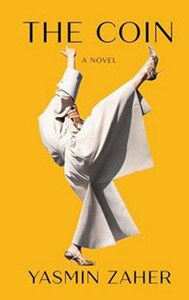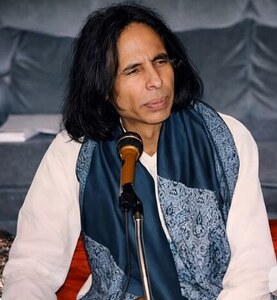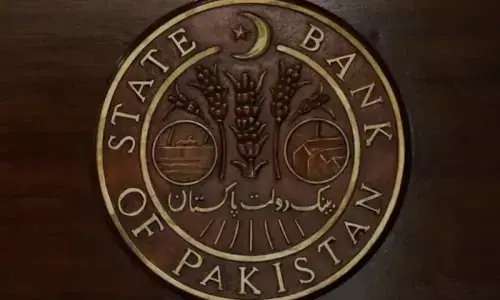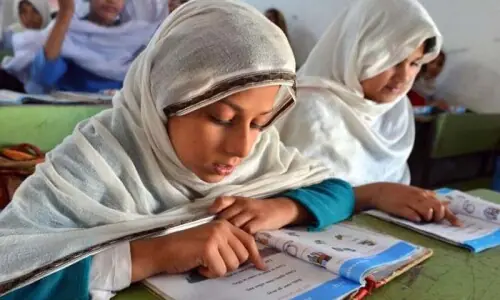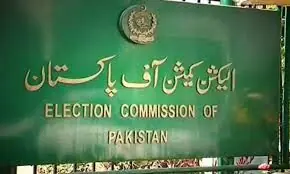
Governance of Islam in Pakistan: An Institutional Study of the Council of Islamic Ideology
By Sarah Holz
Sussex Academic Press, UK
ISBN: 978-1789761665
246pp.
For long, we’ve grappled with the questions of Islam and Pakistan, Islam in Pakistan and, after Quaid-i-Azam Mohammad Ali Jinnah’s death, whether the founder wanted the nation state to be secular or theocratic.
The larger question of Islam as religion, state and culture has been analysed by several historians. Islam as a political and governing ideology of Pakistan has also been extensively explored. A study of the institutions that work with reference to Islam in Pakistan is the gap Dr Sarah Holz intended to fill with her new book, Governance of Islam in Pakistan: An Institutional Study of the Council of Islamic Ideology.
Debating the relation between state and religion is not nuanced or limited to Pakistan. Disciplining and regulating people through processes of governance — that define what is good, bad, legal and illegal — is fundamental to nation states. In Pakistan, this debate is taken as an earnest and insistent necessity, because of its link to the dominant narrative of the state as an Islamic Republic.
Ulema groups or religious political parties are widely studied, but the coordinating role played by institutions that work with reference to Islam is overlooked. The Council of Islamic Ideology (CII) is one of Pakistan’s oldest Islamic institutions and an examination of the actors, factors and debates that have contributed to its institutional development, and enabled or restricted its scope of action, was long needed.
A political scientist deconstructs the work of the Council of Islamic Ideology and how it fits into Pakistan’s ‘Islamisation’ narrative
Holz advocates the study of the CII and similar institutions against the backdrop of political science. Therefore, she departs from the existing and established frameworks of analysis — such as ‘Islamisation’ or bureaucratisation lenses — that look into it in binaries of religious and non-religious spheres of life and assume linear developments. She conceptualises the CII not as an isolated institution, but one that has evolved with the socio-political context and in relation to other institutions that call the shots.
Analysing the subject through the lens of governance allows Holz to consider the unpredictable collaborations, differences and dissent that arise from the interactions and negotiations among the network of state institutions, as well as between state institutions and the public.
The ‘Islamisation’ framework — a grand narrative that obscures the complexity of everyday life and diversity of actors and sites where the above mentioned developments unfold — remains at the macro level in Holz’s book. This becomes particularly useful in contexts where interactions and relationships between the institutions are hybrid, multi-jurisdictional and constantly changing.
Many have investigated the question of how Pakistan was ‘Islamised’, but how the label ‘Islamic’ has been — and is — negotiated, managed and administered by and through state institutions on a daily basis has rarely been addressed. A pattern of rule and hegemonic discourses in Pakistan exists, which is reflected in negotiations and governing mechanisms.
Factors such as postcolonial conditions, feudalism, patriarchy and rural and urban divides are involved. To enable readers to better situate the study, Holz makes certain methodological choices in research design and data collection. Researchers often cite each other’s work heavily, but this leads to an unreliable, closed circularity. To avoid this, Holz tries to triangulate information and access primary material directly, rather than rely on reproduced primary material.
It has been observed that when one chooses to study Islamic groups/ parties/ institutions, they’re accused of ‘speaking for the wrong camp’. Authors such as Humaira Iqtidar or Saba Mahmood, who’ve worked with Islamist groups, noted this when offering studies on Islamist groups beyond the established binaries of either liberal or conservative.
Holz notes that most of her interactions and discussions with the conservatives and the like, or others, were accompanied by a certain uncertainty, discomfort, suspicion and caution, and also confusion about where to place her, a female foreigner.
Tracing the CII’s trajectory over 50 years is not feasible. Therefore, Holz covers specific aspects, with a focus on its formative period, and discussions and events leading up to its establishment.
West Punjab’s provincial government created Pakistan’s first designated Islamic institution, the Department of Islamic Reconstruction, appointing Muhammad Asad as director. He pursued his intellectual interests through it by remaining indisputable. This was the first time any government department was named ‘Islamic’, but what was Islamic about it?
To Asad, it was its aims: to improve the situation of Muslims by rediscovering Muslim history, and to synchronise different interpretations of Islam. This intellectual and educational approach to the past and present set it as an Islamic institution.

Asad outlined the ‘Islamic reconstruction’ of Pakistan in 1947, identifying four areas for intervention: education, Islamic law and social organisation, Islamic law and economics, and the coordination of auqaaf [property held in trust and used for charitable or religious purposes] and civic morale.
After Independence, the newly sovereign state extended its reach and assumed responsibility over all spheres of life of its citizens. Pakistan’s Constitution and its Objectives Resolution and relevant clauses provide the constitutional framework with reference to Islam. Although representatives of minorities, and some from East Pakistan, opposed the Objectives Resolution, it was adopted without even considering any of their proposed amendments.
In the current Constitution (1973), three more aspects were added to the governing spectrum: Islamiat as a compulsory subject in schools and universities, the facilitation for learning Arabic, and the correct organisation of ushr [levy on agricultural produce].
Holz employs the phrase “institutions that work with reference to Islam” instead of the qualifier ‘Islamic’ because the latter is vague and loaded. These institutions claim to define norms, practices and rituals based on their interpretations of Divine texts and traditions.
They form synergies via interaction, so, even if one institution might seem toothless, their collective and constant interaction — sometimes in unpredictable, novel ways — magnifies the influence of each. They cooperate, compete and coordinate at multiple levels, multiple sites. They take part in rules and regulations and set agendas, monitor, and demarcate boundaries of discourse and practices. They contribute to national narratives through their activities and collectively establish an official frame of reference.
The CII has an advisory role with no legal binding, but its rulings have an impact on Pakistan’s societal life. For instance, under Maulana Mohammad Khan Sherani’s chairmanship in 2016, the CII proposed a ‘model women protection’ bill that allowed a husband to lightly beat his wife if needed. This sparked controversy, inviting anger and backlash on social media.
However, the opacity and general dismissive attitude of the network of institutions that work with reference to Islam allows some individuals and groups, who are privy to how the network functions, to exploit it and to push for their interests.
About 32 institutions that work with reference to Islam — from the Department of Islamic Reconstruction (1947) to Iqbal Academy (1951) to the Rehmatul-lil-Aalameen Authority (2021) — have been established so far and their areas of responsibilities and tasks tend to be reassigned and reframed with ease.
Holz contends that successive governments often choose to create new institutions rather than expand the competencies of established ones, even though the latter are flexible and adaptable, can function as checks and balances and can open opportunities to alter the existing course of action and introduce new ideas.
With the emergence of new ideas of governance, Pakistan’s network of institutions grew, consolidating state power. From the 1970s, their focus shifted from knowledge production to regulating everyday life, with Gen Ziaul Haq’s regime concentrating on the legal and judicial sector. Governance of Islam, or governance in the name of Islam, is justified by governments as a measure to achieve sectarian harmony, counter extremism or manage challenging diversity by creating a single/monolithic national identity.
Governance of Islam in Pakistan is a seminal contribution to political science in general, and Asian Studies in particular. Instead of engaging with what the CII should do, Holz explores what it has been doing and how it has negotiated its terms of status as an Islamic institution. By comparing assumptions and perceptions with actual performance, she brings forth numerous insights regarding institutions that work with reference to Islam.
In conceptualising Islamic institutions in an Islamic republic to its membership and composition, Holz’s book deserves praise for illustrating through debates, deliberations and criticism that labelling the CII ‘traditional’ and ‘Islamic’ has concealed more than revealed.
The reviewer is a Lecturer at the National University of Modern Languages, Islamabad. He tweets @Sohail_QAU
Published in Dawn, Books & Authors, January 22nd, 2023


